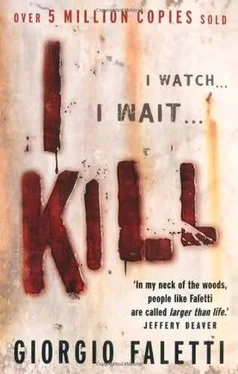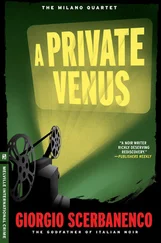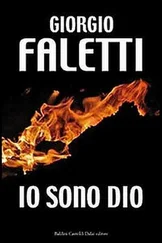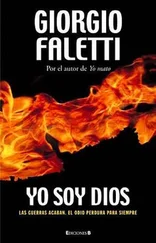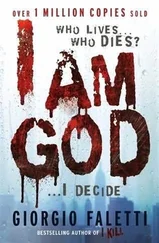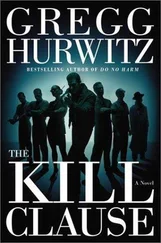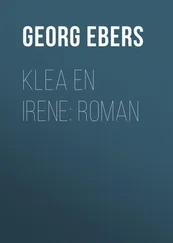‘Madame, this is much more than simply remembering things. He’s an encyclopedia.’
Jean-Loup had taken back the pile of papers and answered the boy’s smile with a smile. He had gestured towards the Radio Monte Carlo building.
‘Pierrot, would you like to take a tour of the station and see where we broadcast?’
He had shown the boy around the studio and offered him a Coke. Pierrot had looked at everything with fascination, and mother and son’s eyes shone with equal brightness as she observed his joy. But when they stepped into the basement archives with its sea of CDs and LPs, Pierrot looked as if he’d gone to heaven.
When the employees of the station heard the boy’s life story (the father had bolted as soon as he learned of his son’s disability, leaving the boy and his mother alone and penniless), and especially when they realized his musical knowledge, Pierrot was invited to join the Radio Monte Carlo staff. His mother was astonished. Pierrot now had somewhere safe to go while she was out at work and he even received a small salary. But most of all, he was happy.
Promises and bets, thought Jean-Loup. Occasionally one was kept and sometimes you won. There were better things in the world, but this, at least, was something.
Pierrot stepped into the lift holding the CDs and pressed the button. ‘I’m going into the room to put these back. Then I’ll come back, so can I see your programme.’
The room was his own personal description of the archive and seeing your programme was not just one of his linguistic inventions. He meant he could stand behind the glass and watch Jean-Loup, his best friend, his idol, with adoring eyes, instead of sitting at home and listening on the radio as before.
‘Okay. I’ll save you a front-row seat.’
The door closed on Pierrot’s bright smile.
Jean-Loup crossed the landing and punched in the code to open the door. The long desk that was Raquel’s domain was right at the entrance. A petite brunette with a thin but pleasant face, and who always seemed in command of the situation. Raquel pointed her finger in his direction. ‘You’re taking your chances,’ she said. One of these days, I’m not going to let you in.’
Jean-Loup walked over and moved her finger as if it were a loaded gun. ‘Didn’t anyone teach you not to point your finger at people? What if it was loaded and went off? Anyway, what are you still doing here? Even Pierrot’s still here. Is there a party I don’t know about?’
‘No parties, just overtime. And it’s all your fault. You’re stealing all the ratings and we have to scramble to catch up.’ She motioned with her head to the room behind her.
‘Go and see the boss. There’s news.’
‘Good? Bad? So-so? Is he finally going to ask me to marry him?’
‘He wants to tell you himself. He’s in the president’s office,’ Raquel answered, vague but smiling.
Jean-Loup padded across the soft blue carpet patterned with small cream-coloured crowns. Stopping in front of the last door on the right, he knocked and entered without being invited. The boss was sitting at his desk and – as Jean-Loup might have guessed – was on the phone. The office was clouded with cigarette smoke. Radio Monte Carlo’s manager was the only person Jean-Loup knew who smoked those toxic Russian cigarettes, the ones with the long cardboard filters that had to be folded in a solemn ritual before they could be used.
Robert Bikjalo nodded at him to sit down.
Jean-Loup took a seat in one of the black leather armchairs in front of the desk. As Bikjalo finished his conversation and closed the case of his Motorola phone, Jean-Loup fanned his hand in the smoky air. ‘Are you trying to make this a place for people nostalgic for fog? London or die? No, London and die? Does the big boss know you pollute his office when he’s not here? If I wanted, I could blackmail you for the rest of your life.’
Radio Monte Carlo, the Italian-language station of the Principality, had been taken over by a company that ran a clutch of private stations. Its headquarters were in Milan. Robert Bikjalo was the man in charge of running things in Monaco; the president only appeared for important meetings.
‘You’re a bastard, Jean-Loup. A dirty, gutless bastard.’
‘How can you smoke that stuff? You’re approaching the border between smoke and nerve gas. Or maybe you crossed it years ago and I’m talking to your ghost.’
‘I’m not even going to bother answering,’ said Bikjalo, expressionless and as unaffected by Jean-Loup’s sense of humour as by the smoke from the cigarettes. ‘I haven’t been here waiting for you to park your precious ass so I can listen to you make snide remarks about my smoking.’
This exchange was a routine they’d shared for years, but Jean-Loup knew they were still far from calling each other friends. The sarcasm disguised the fact that it was nearly impossible to get to the bottom of things with Robert Bikjalo. Okay, he was intelligent, perhaps, but he was definitely a shrewd cookie. An intelligent man sometimes gives the world more than he gets back in return; a cunning one tries to take as much as he can while giving back as little as possible. Jean-Loup was well aware of the rules of the game, in the world in general and in his milieu in particular: he was the deejay of Voices, a hit radio show. People like Bikjalo showed interest in you only in proportion to your ratings.
‘I just want to tell you what I think of you and your show before I throw you out on the street for good.’ Bikjalo leaned back in his chair and finally extinguished the cigarette in an overflowing ashtray. Silence fell between them. Then, like someone with a good hand who says, ‘I’ll see you!’ Bikjalo continued. ‘I got a phone call today about Voices. It was someone very close to the palace. Don’t ask me who, because I can’t tell you…’
The manager’s tone of voice suddenly changed. A forty-carat grin flashed across his face as he laid down a royal flush. ‘The Prince in person has expressed his pleasure at the show’s success!’
Jean-Loup stood up from his chair with an equally wide smile, high-fived the hand held out to him, and sat back down. Bikjalo was still flying on the wings of his triumph.
‘Monte Carlo has always had an image of being a place for the rich, a haven to escape taxes from just about everywhere else. Recently, with all the shit happening in America, and the economic crisis practically worldwide, we seem a bit dull.’
He said ‘we’ with an air of sympathy, but he was someone who didn’t seem very involved in the problems of others. He pulled out another cigarette, bent the filter and lit it.
‘A few years ago, there were 2,000 people in the casino at this time of night. These days, some evenings there’s a really scary morning-after feeling. The jump start you gave to Voices, using it to confront social issues, has brought something fresh and new to the city. A lot of people now think of Radio Monte Carlo as a place where they can solve problems, where they can call for help. It’s been great for the station, too, I don’t deny it. There’s a whole group of new sponsors just waiting in line, and that’s a measure of the programme’s success.’
Jean-Loup raised his eyebrows and smiled. Robert was a manager, and for him success ultimately meant a sigh of relief and a sense of satisfaction when he wrote the annual report. The heroic era of Radio Monte Carlo, the days of Jocelyn and Awanagana and Herbert Pagani, in other words, was over. This was the era of economics.
‘I must admit we’ve been good. You mostly. Apart from the programme’s winning formula and the new direction it’s taken, it’s a success because you’re good at deejaying in French and Italian. I just did my job.’
Читать дальше
